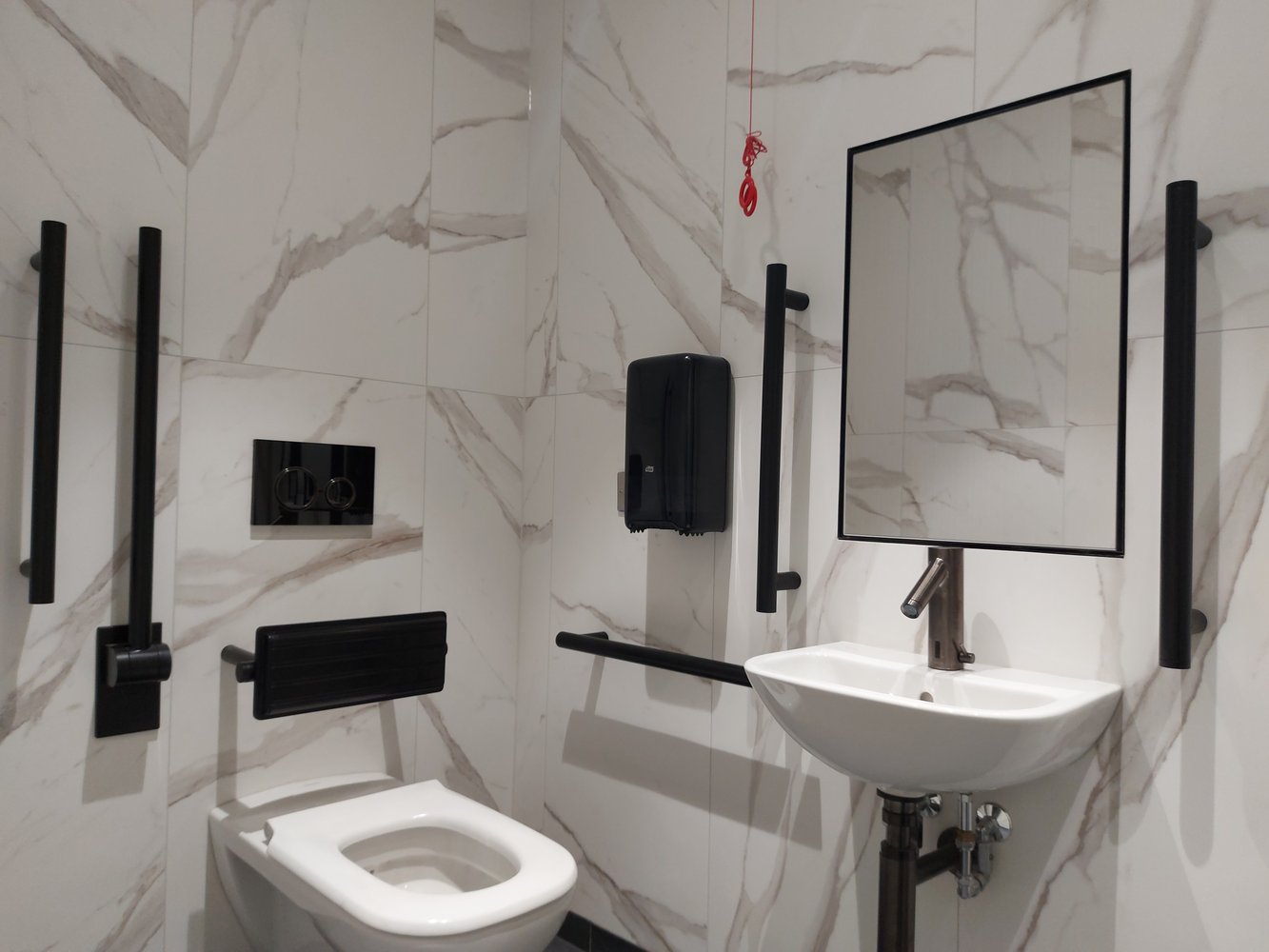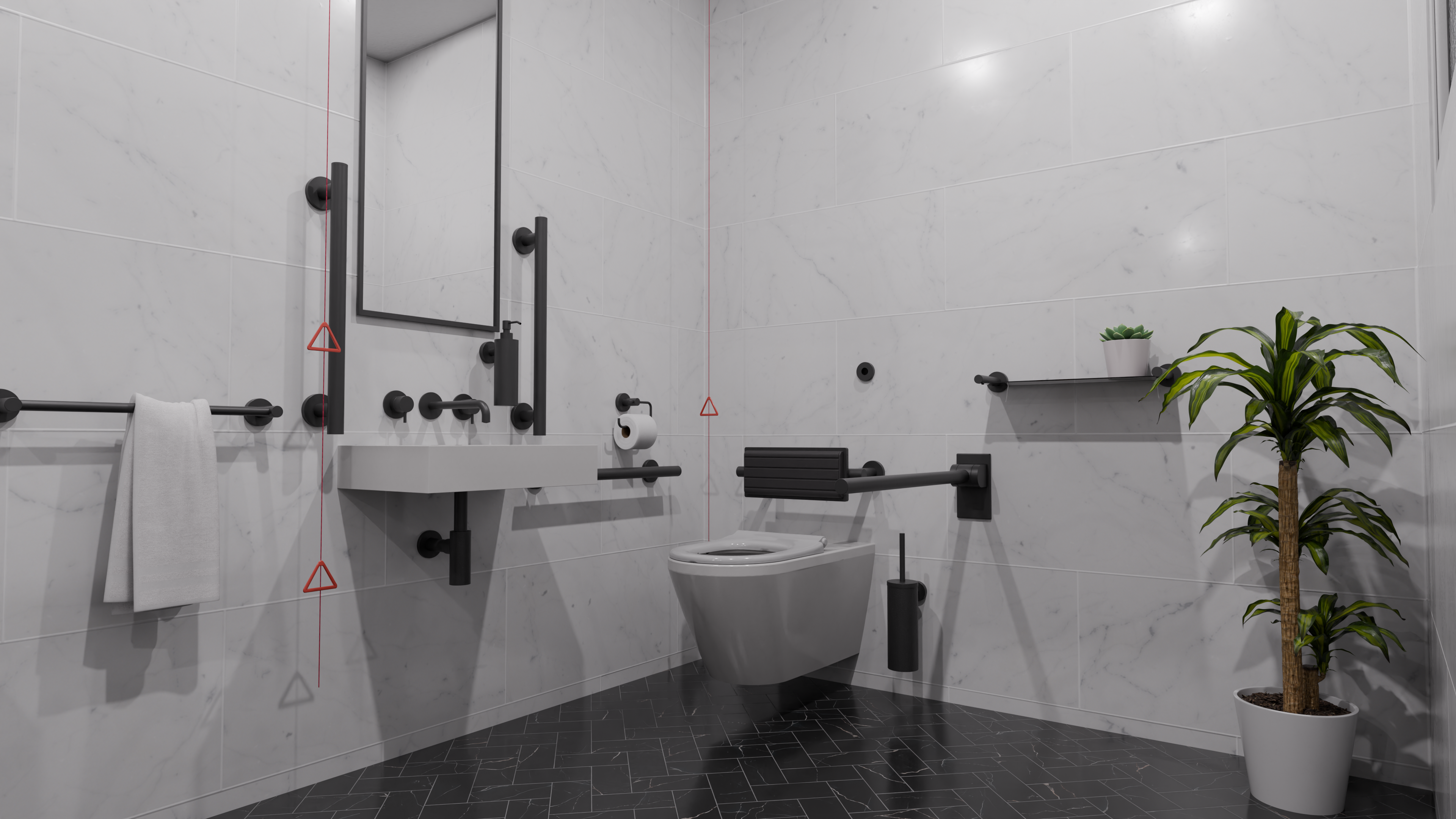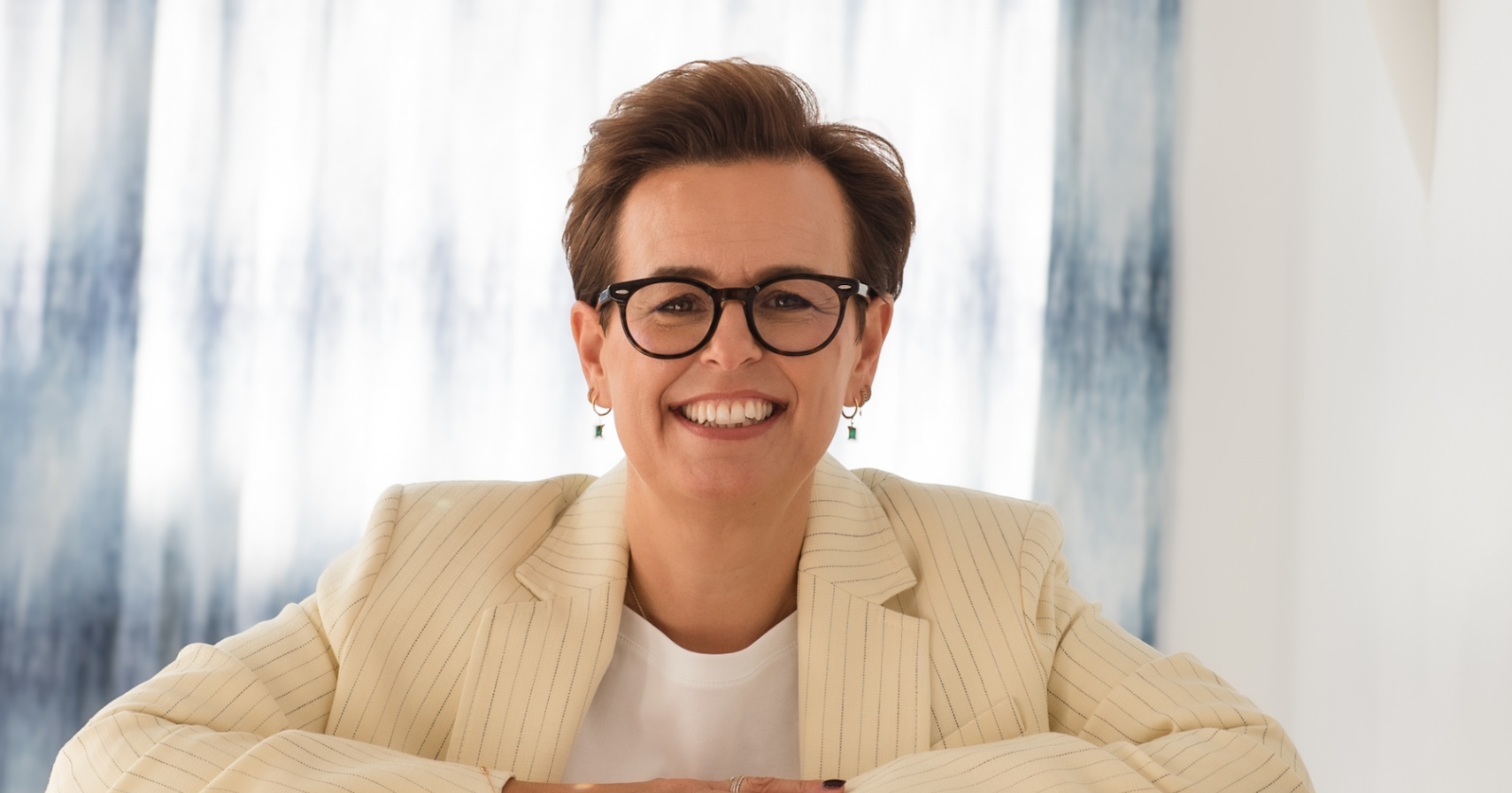Accessibility Beyond Compliance
While compliance with regulations such as Part M of the Building Regulations (England and Wales) is a critical baseline, the most successful commercial spaces go beyond minimum requirements. True accessibility is about creating dignity and ease for users - not just ticking boxes. This means rethinking standard approaches to layout, signage, lighting and finishes. It means ensuring that spaces are not only accessible but beautiful and cohesive with the rest of the design.
In the context of the modern workplace, these considerations become even more vital. Offices are no longer just places of work - they are extensions of company culture, identity and values. Designing for inclusivity in the workplace supports diverse hiring practices, fosters employee engagement and ensures all individuals feel seen, respected and empowered within their daily environment.
The Role of Inclusive Washroom Design
Accessible washrooms are a key area where thoughtful designs can have a significant impact. Unfortunately, these spaces are often treated as clinical or secondary zones, lacking the same care and design continuity found elsewhere in a project.
Fitzroy of London approaches accessible washroom design holistically. Our products are created to offer the same visual appeal as those in any premium space, while meeting rigorous accessibility standards. We believe accessible doesn’t mean utilitarian - it can, and should, reflect the same elegance, quality and attention to detail as the wider environment.
In workplace settings, where staff spend the majority of their day, the design of these essential spaces plays a crucial role in creating an environment of care and respect. A beautifully designed, inclusive washroom sends a clear message: every employee matters.

Turner House: A Case Study in Inclusive Workplace
A prime example of where inclusive design has triumphed is the transformation of Turner House, located on Great Marlborough Street, London. Spearheaded by global beverage leader Diageo, this project aimed to create a modern, inclusive workplace that reflected the company’s post-pandemic strategy and global ambition to be one of the most inclusive employers in the world.
Working closely with Former UK Architects and contractors such as Fayers Plumbing, Fitzroy of London was commissioned to supply inclusive washroom solutions that blended seamlessly with the building’s high-end design scheme. The specification included products from our Gosfield range, chosen for their modern minimalism, along with a bespoke Matt Black inclusive bathroom pack that delivered both functional accessibility and a sophisticated, unified aesthetic.
From early specification through to final installation, Fitzroy’s involvement ensured the accessible spaces at Turner House were every bit as considered and contemporary as the rest of the workplace.

Designing for Dignity and Choice in the Workplace
At the heart of inclusive design is the idea of choice - giving people the ability to use a space comfortably and independently, without having to compromise. Whether it’s the inclusion of gender-neutral facilities, easy-to-use fixtures or clear wayfinding, inclusive commercial design empowers everyone to engage with a space on equal terms.
This has a direct link to employee wellness. A well-designed, inclusive environment helps to reduce anxiety, remove barriers and foster a sense of belonging - particularly for employees with disabilities, neurodiverse conditions, or cultural sensitivities. By addressing both the physical and emotional needs of all users, organisations create workspaces that don’t just function well but actively support wellbeing and productivity.
For developers, designers and operators, embracing inclusive principles from the outset not only leads to better user experiences, but also offers long-term commercial benefits - from improved brand perception to enhanced employee retention and satisfaction.
Looking to the Future
As the demand for inclusivity grows, so too does the opportunity to innovate. At Fitzroy of London, we continue to evolve our product collections to support designers and specifiers in creating environments that are as inclusive as they are inspiring.
The transformation of Turner House serves as a reminder that inclusive design isn’t just about accessibility - it’s about dignity, design integrity and creating spaces that work beautifully for everyone.




